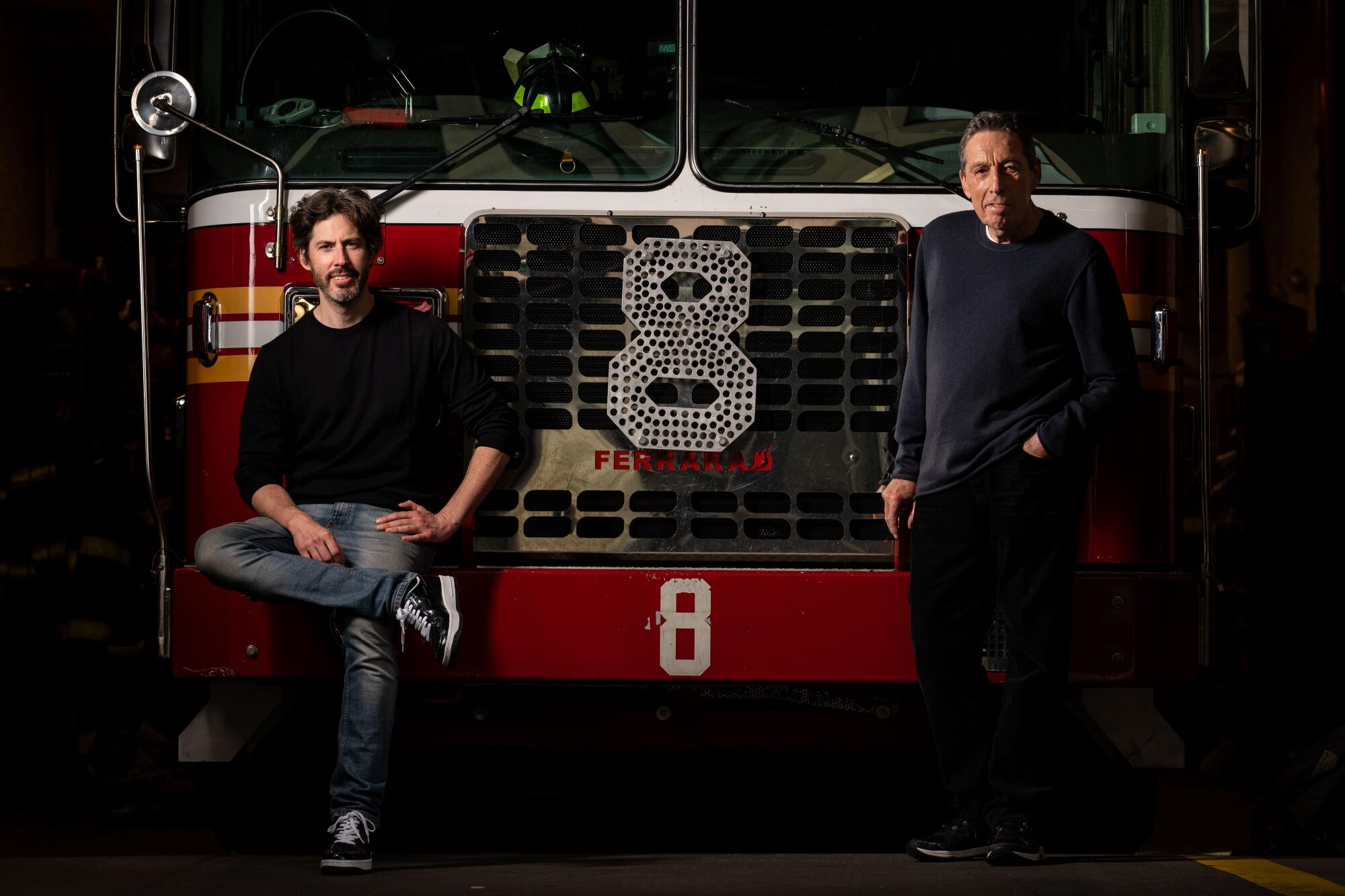
As a filmmaker, Ivan Reitman built a hugely successful career on a foundation of laughs with comedies like “Meatballs,” “Stripes,” “Twins” and “Dave.” But on a recent afternoon in Beverly Hills, Reitman was fighting back tears as he sat beside his son, Jason, discussing their new film, “Ghostbusters: Afterlife.”
This particular day was already freighted with significance for the elder Reitman as he celebrated his 75th birthday. But more than that, he was feeling deeply moved to find himself, decades after directing the original 1984 smash “Ghostbusters” and its 1989 sequel, now passing the torch of his greatest success to his son. “I’m sorry I’m crying,” Reitman said. “This has been a very emotional experience.”
For the Reitmans, “Afterlife” — which hits theaters Friday after being delayed more than a year by the pandemic — marks an unlikely union of father-and-son filmmakers, a crossing of the proverbial proton streams that for years neither one imagined would ever happen. Jason, 44, who has earned four Oscar nominations for his work on the films “Juno” and “Up in the Air,” directed “Afterlife” and co-wrote the script with Gil Kenan, while Ivan served as producer.
Picking up the main “Ghostbusters” storyline more than 30 years after “Ghostbusters II,” “Afterlife” is itself a story about familial legacy, exploring the ways a younger generation can be haunted — in a very literal sense — by the actions of their forebears.
In the film, a single mother (Carrie Coon) and her two children (Mckenna Grace and Finn Wolfhard) move to a decaying farmhouse in Oklahoma they have inherited. Investigating a series of supernatural events taking place around an abandoned mine, the teens soon discover they are part of a lineage stretching back to the original Ghostbusters who saved New York City from a paranormal invasion decades earlier.
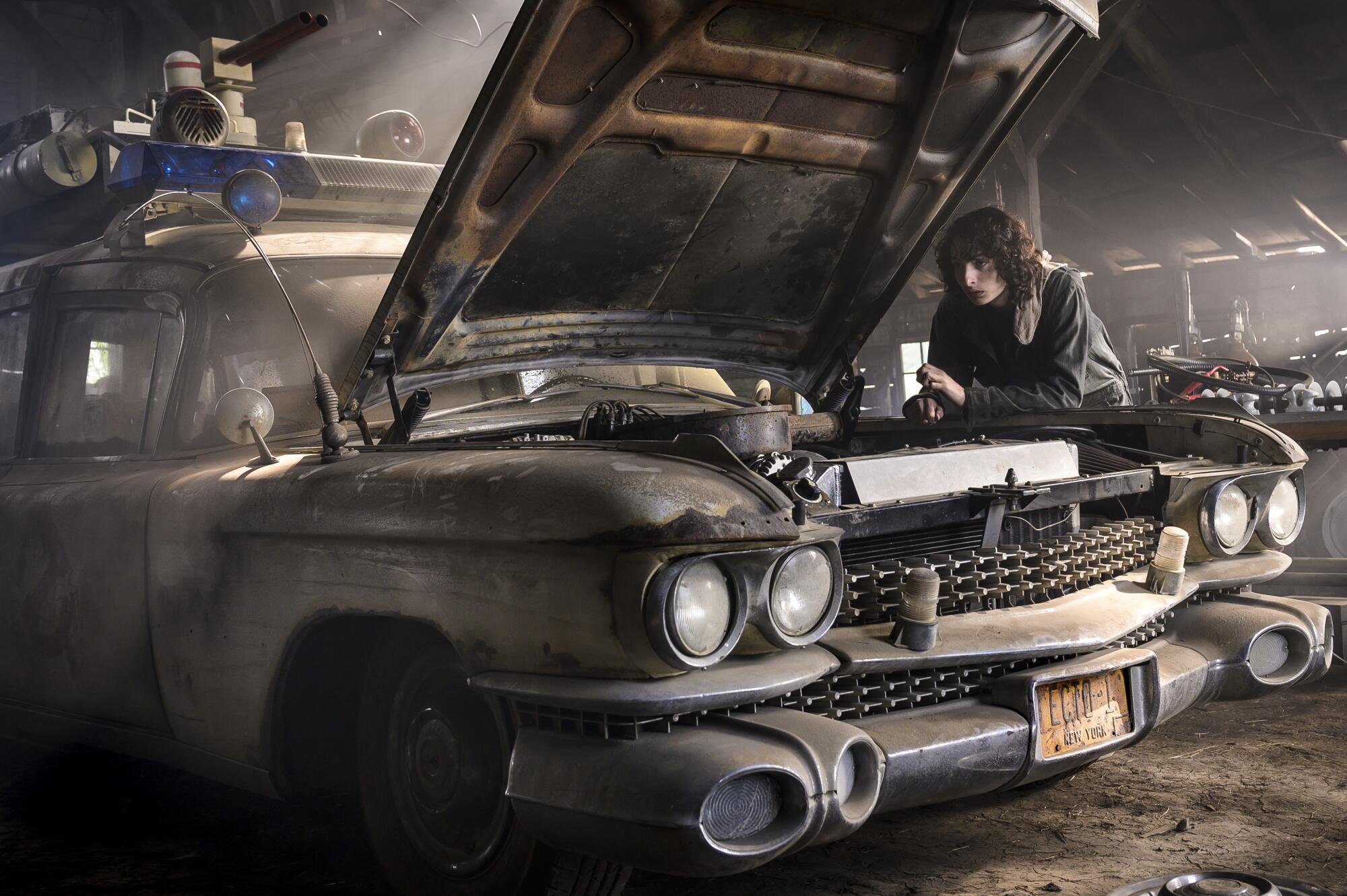
Dan Aykroyd — who was one-fourth of the original team of Ghostbusters alongside Bill Murray, Ernie Hudson and the late Harold Ramis, who died in 2014 — says it was touching to watch Jason pick up the baton of the franchise his father launched.
“Jason is a family member,” says Aykroyd, who reprises his original role in the new film along with fellow returning “Ghostbusters” cast members Murray, Hudson and Annie Potts. “He has a great amount of genuine affection for the property, and he was very respectful to make sure the story goes on and stays within a certain set of tracks.”
The Times spoke with the Reitmans about the improbable road to “Afterlife” and reckoning with ghosts from the past, cinematic and otherwise.
Ivan, you spent years trying in vain to make a third “Ghostbusters” movie. When Sony decided to reboot the franchise with director Paul Feig’s 2016 all-female “Ghostbusters,” did you think that was the end of the road for the original “Ghostbusters” storyline?
Ivan: The studio always wanted to do another “Ghostbusters,” and I wanted to do another one. But the studio was sort of unsure of itself in terms of actually greenlighting anything, and then Harold started getting sicker and sicker until he passed away. It was clear to me that I couldn’t do the movie next. And it was really a gift from God that Jason came forward three years ago and said, “Hey, Dad, you won’t believe this, but I think I’ve got this idea. What do you think?” And he told me this story that just knocked me out.
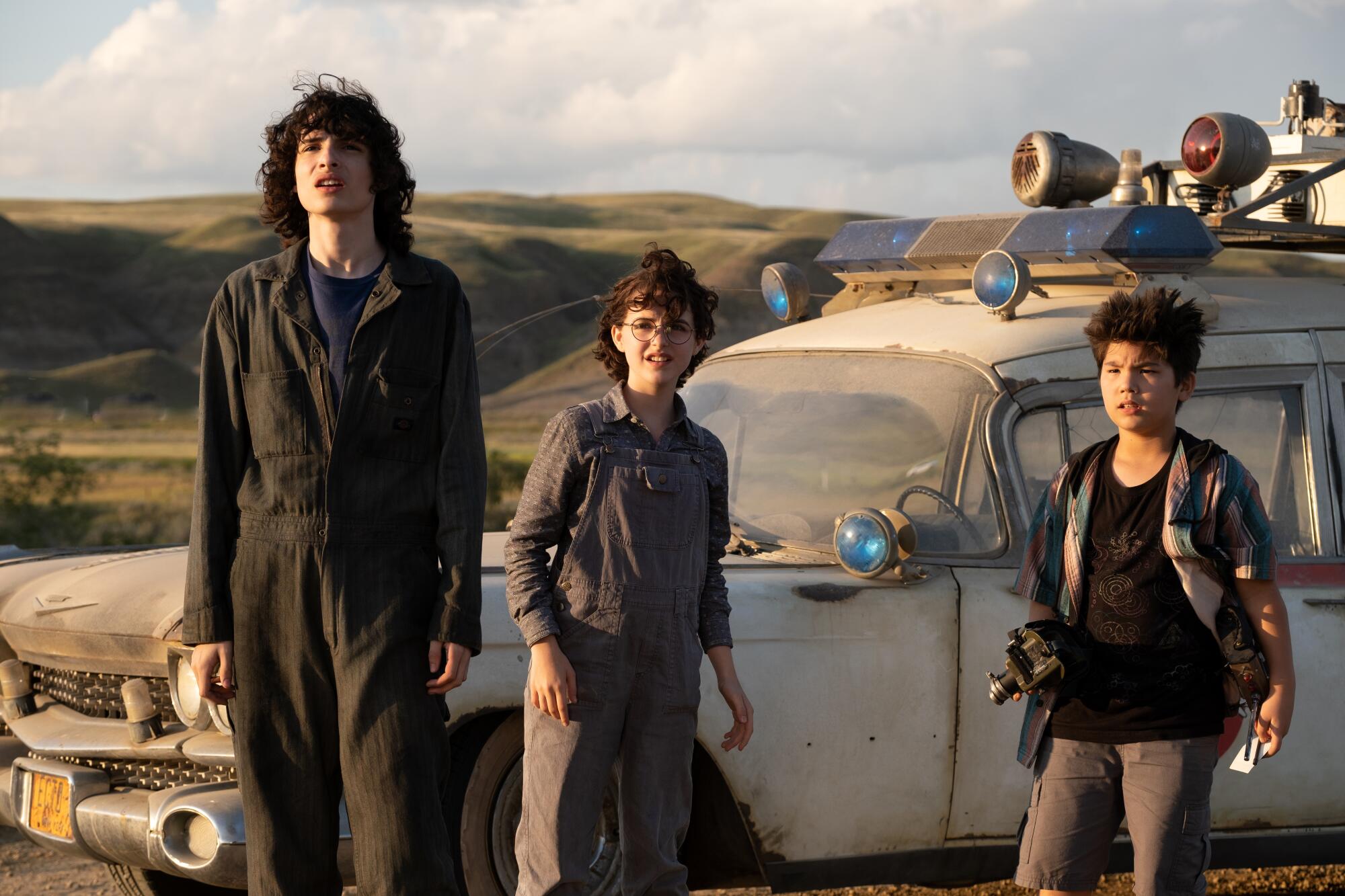
Had you two ever discussed the possibility of Jason taking the reins of the “Ghostbusters” franchise before?
Jason: I had kind of heard the comings and goings of attempts at making another “Ghostbusters” film, but I never thought of it as my problem. I was just like, “I’m sure you’ll figure it out, and meanwhile, I’ll just go make my movies.”
Having been on the set of the original “Ghostbusters” as a kid, what was your feeling about stepping into your dad’s shoes in this way?
Jason: Like any child of anybody, I ran from my parents’ shadow, first avoiding filmmaking, and then, even once I started directing, I clearly went a different route and tried to be an independent filmmaker.
People would ask all the time, “Are you going to make a ‘Ghostbusters’ movie?” And I made the arrogant mistake of thinking, “Oh, they really want to see my ‘Ghostbusters’ movie.” When the truth is, they just want to see a “Ghostbusters” movie. We all want another ride in the car. We all want to see Indiana Jones put the hat back on. We want to see the DeLorean hit 88 again.
I’d probably been thinking about a potential “Ghostbusters” movie the way everyone else had, which was always: You get four new people, and they open up a ghostbusting business in New York City. For me, the new angle was this family. I thought about this girl, and I thought about a brother. And once I knew who this family was, I had my way in. But I was really nervous about it. I was genuinely nervous that if I took on this franchise and failed, it would be a very public failure under a very hot spotlight.
Ivan: I was somewhat shocked when he came to me with this idea. It made me a little nervous for all the kind of obvious business reasons. The audience is very strict about “Ghostbusters,” and they want that sort of experience of the ’84 movie. And it’s harder and harder to do that. The world is different, and the comedic energy is different.
The audience is also coming to terms with the loss of a family member [since Ramis’ passing]. I think that gives an extraordinary kind of weight to the story, a good kind of weight, and still allows us to do something that is funny and scary. That was sort of the magic trick of Jason and Gil’s script.
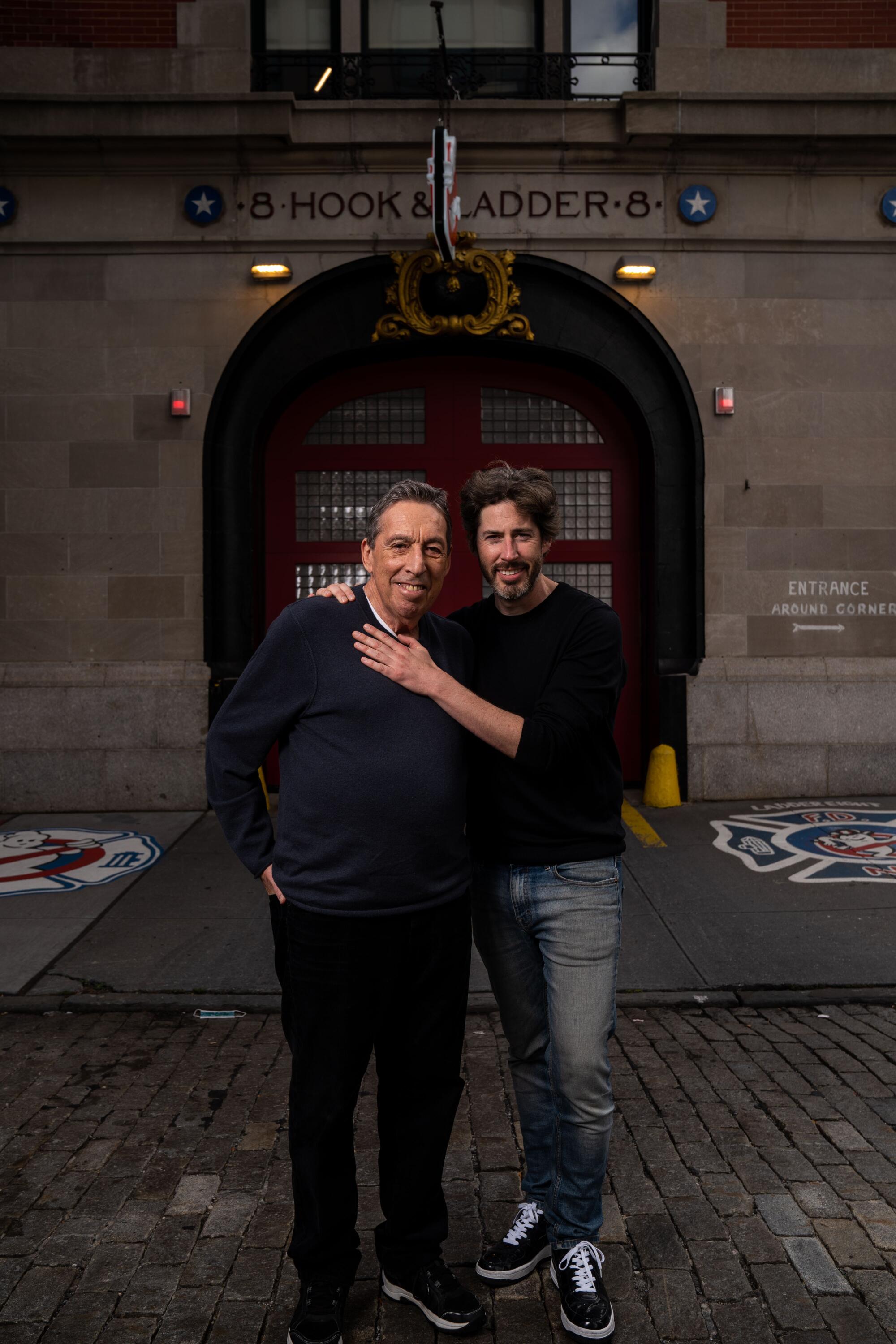
The 2016 “Ghostbusters” reboot was polarizing among fans and underperformed at the box office. How did that film impact your thinking about this one?
Jason: That film takes place in its own universe, so that really was never anything I had to think about. It is its own film, and it’s a really funny film with incredible performances, and I’m a fan of it. Really the only impact that had on my approach to “Afterlife” was that it made my life a lot easier because Paul had already taken up the burden of making the first “Ghostbusters” film that my father had not directed and had opened up people’s minds about what a “Ghostbusters” movie could be.
There were all kinds of choices in that film that, whether you liked them or not, were shaking the Etch A Sketch. So now I can make a movie about a family in Oklahoma with a different color palette and the characters aren’t opening up a ghostbusting company — and all these things are possible, and I’m not getting any headwind.
Jason, how did you approach making this movie your own?
Jason: The first person I wanted to make happy was my dad. Then the Ramis family was on my mind at all times. Then beyond that, it was “Ghostbusters” fans. The normal relationship you have with the audience is that the film belongs to the filmmaker until it’s released, and then it belongs to the audience. This is the first time I’ve ever had the experience that the film never belonged to me. I just carried the baton. So I wasn’t thinking about, “How do I make this my movie?” Because it never was mine.
My father was a little bit younger than me when he made “Ghostbusters,” so I found myself constantly thinking, “My instinct is to shoot this scene this way — did my father arrive at the same decision the same way?” It’s literally like putting your parents’ clothes on. It’s like finding out you shave similarly to your father because the hairs on your face grow in the same direction. And this would happen every day. I don’t know if any director has ever gone through that experience.
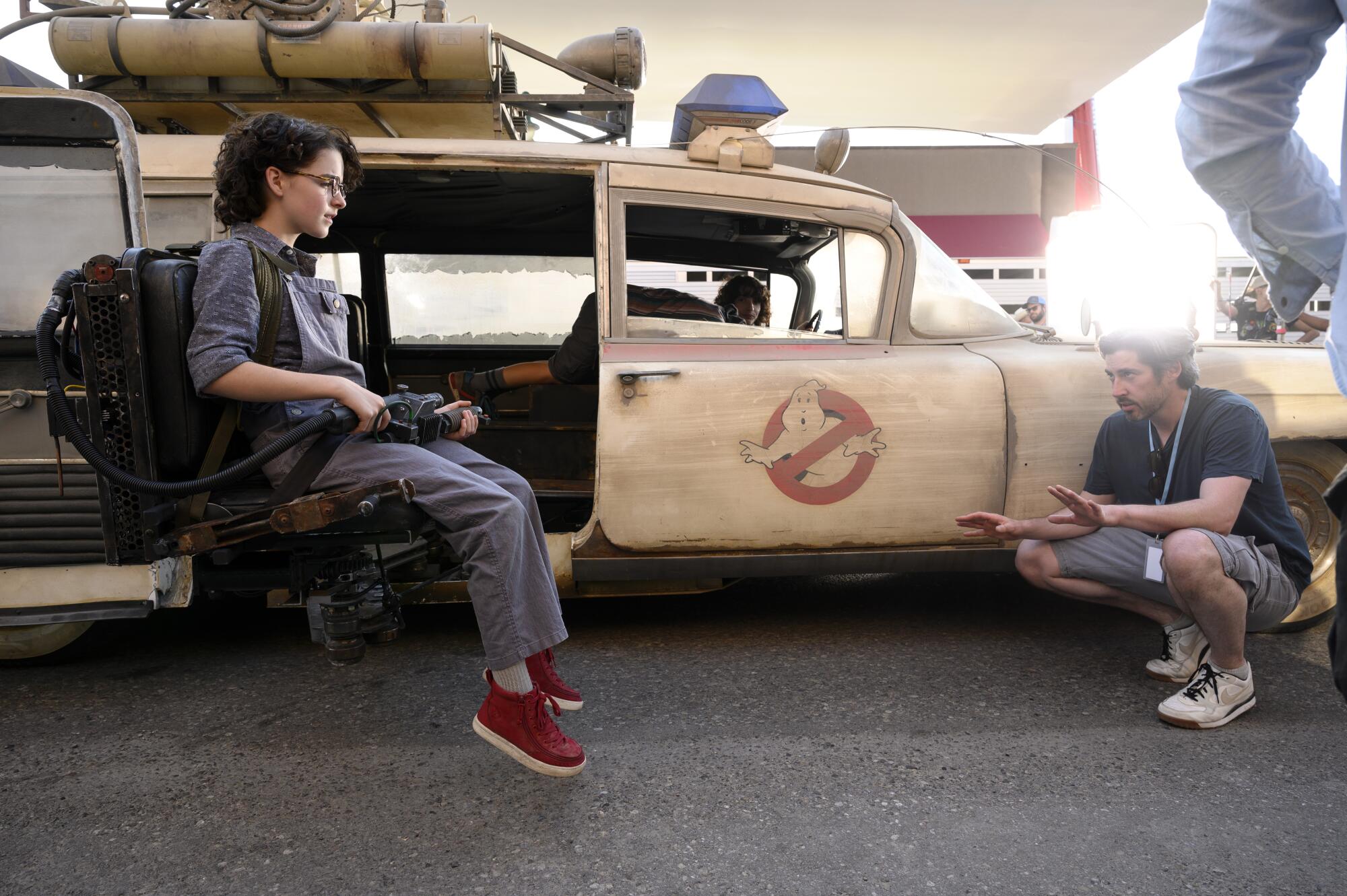
Ivan, what was it like for you to watch Jason make those kinds of filmmaking decisions on the set?
Ivan: It was joyful. He was very generous and respectful with me. We fought, but I thought it was healthy. It was hard because I felt I knew the right way to make a “Ghostbusters” movie, so when he took a different approach to blocking a scene or something, he would argue. I’d say, “OK, well, this is your movie.” And I had to learn how to do that in a sincere way.
Jason: I never will have a producer I trust more than my father. I mean, it is strange having your father sitting next to you at work reviewing your work in real time —
Ivan: And it’s my personality to be critical just in general. He’s had to live with this all his life.
Jason: Yeah, I mean, you’re literally interrupting my quote right now! [Laughs.] But it’s the experience of a lifetime. It put pressure on us, and it made us unbelievably close.
It’s been almost 40 years since the original “Ghostbusters” came out, and kids still go trick-or-treating on Halloween every year wearing proton packs. What is your sense of the film’s legacy and why it has endured for so long?
Ivan: It’s interesting to watch the great success of the Marvel Universe movies. They borrow a lot, actually, from “Ghostbusters” in terms of the mix of comedic tone and strong action. It’s just wonderful to watch.
Jason: If you think about comedies that would involve ghosts prior to “Ghostbusters,” they would treat the ghost goofy. They would acknowledge it was a comedy in every moment. But one of the things that made “Ghostbusters” truly groundbreaking was how genuinely scary it was. So when you ask what makes it enduring, it’s that if you were a certain age when it came out, it was the funniest movie you’d ever seen. But if you were a different age, it was the scariest movie you’d ever seen.
There’s 10 different ways in on “Ghostbusters,” so much so that it is somehow just as relevant today and does not feel dated. It’s part of the reason the film was so great — and part of the reason it’s so scary to make a sequel to it.
More to Read
Only good movies
Get the Indie Focus newsletter, Mark Olsen's weekly guide to the world of cinema.
You may occasionally receive promotional content from the Los Angeles Times.











